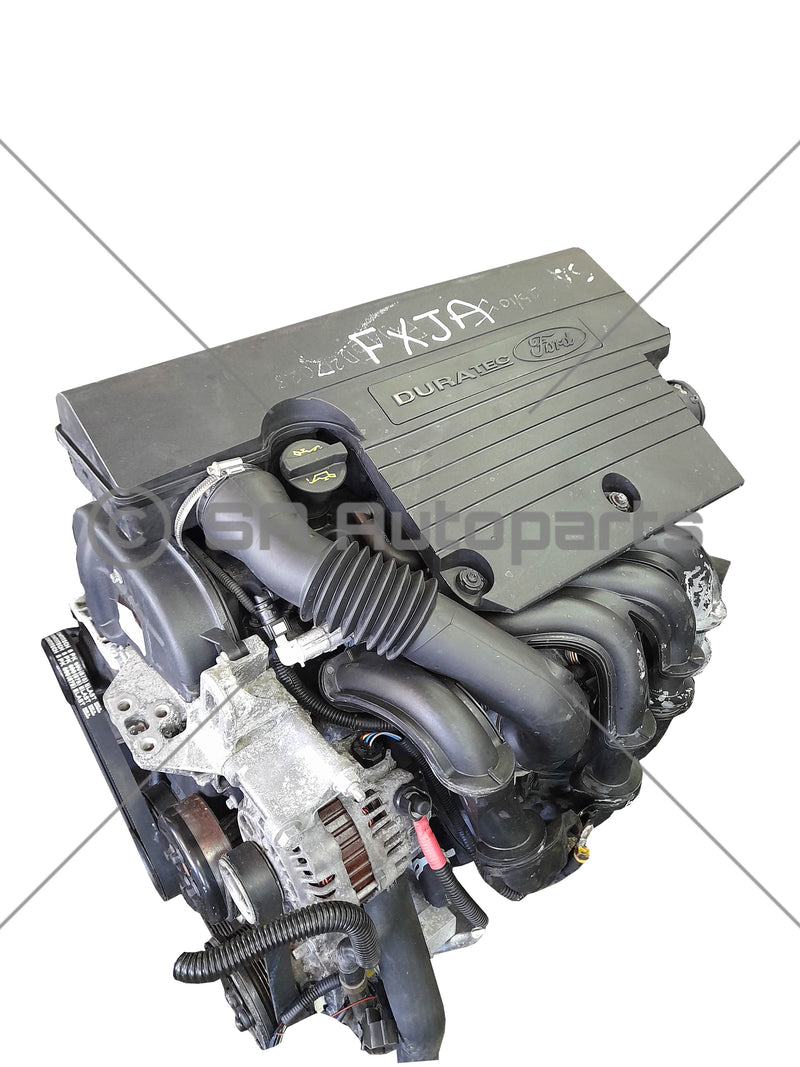Opening the Power of Engines: A Comprehensive Guide to Efficiency and Efficiency
Recognizing the intricate auto mechanics of engines is critical for both efficiency fanatics and everyday chauffeurs. The responses might redefine our approach to engine performance and efficiency in methods that are both informing and crucial.
Understanding Engine Basics
What makes up the fundamental technicians of an engine? At its core, an engine is an equipment made to transform fuel right into mechanical power with a series of regulated surges or combustion processes.
The crankshaft after that transforms this linear activity into rotational energy, which ultimately powers the vehicle. The camshaft regulates the opening and closing of the valves, regulating the consumption of air and fuel and the expulsion of exhaust gases. Additionally, the engine relies upon a meticulously adjusted fuel-air mix, ignition system, and cooling system to make certain ideal efficiency and effectiveness.
Understanding engine essentials also entails recognizing the significance of engine cycles, such as the four-stroke cycle, which consists of intake, power, compression, and exhaust strokes. Each stage is critical in making sure the engine operates smoothly and properly. Mastery of these basic mechanics prepares for exploring extra complex engine characteristics and efficiency metrics, vital for maximizing both power outcome and performance.
Secret Efficiency Metrics
Key efficiency metrics are important for reviewing an engine's efficiency and power result, offering useful insights for both makers and customers. These metrics work as criteria for engine efficiency, allowing for educated decisions in design, acquiring, and production.
Among the main metrics is horsepower, which evaluates the engine's ability to execute job over time. Torque, measured in pound-feet, is one more essential metric that suggests the engine's rotational force, directly affecting acceleration and lugging ability. Gas performance, commonly measured in miles per gallon (MPG) or liters per 100 kilometers (L/100km), examines exactly how successfully the engine transforms fuel into motion, impacting ecological considerations and operational costs.
Additionally, thermal performance actions just how well an engine transforms gas power into useful job, disclosing understandings right into power losses mainly through warmth. Exhaust levels, including CO2 and NOx, are also vital, reflecting the engine's ecological influence and compliance with regulative standards.

Tuning Methods for Performance
Tuning strategies play a significant role in enhancing engine efficiency by enhancing efficiency metrics recognized in earlier discussions (ford fiesta engine). Various methods exist to fine-tune an engine, each adding to boosted fuel economy and decreased emissions
One effective technique is adjusting the air-fuel proportion, making certain the engine runs within the optimum burning routine. A leaner blend can improve gas performance, however it needs to be balanced to avoid misfires or engine knock. Additionally, reprogramming the engine management system can recalibrate parameters such as ignition timing, which further improves performance while preserving power outcome.
Another essential strategy entails customizing the intake and exhaust systems. Updating to high-performance air filters and exhaust headers can lower back pressure, promoting much better airflow. This allows the engine to breathe even more openly, resulting in boosted burning performance.
Additionally, the execution of sophisticated tuning devices, like dyno screening, offers specific information that allows targeted changes. Routinely monitoring these efficiency metrics guarantees that adjusting efforts produce the preferred efficiency results. Collectively, these strategies not only strengthen engine performance yet also add to long-term sustainability in engine procedures.
Maintenance for Optimum Performance
Normal engine maintenance is essential for accomplishing optimal efficiency and durability. A properly maintained engine not just operates effectively but additionally minimizes the threat of costly fixings and break downs. Trick elements requiring regular interest consist of oil, filters, belts, and stimulate plugs.
Changing the engine oil at recommended periods is critical, as oil lubricates relocating parts and avoids overheating. Likewise, changing oil and air filters ensures that pollutants do not hinder engine feature. Disregarding these components can result in visit their website minimized performance and possible engine damages.
In addition, inspecting and replacing worn belts and pipes is crucial to avoid sudden failures. Timing belts, particularly, ought to be replaced according to the producer's routine to prevent disastrous engine damages.
Ignition system need to additionally be examined and changed as essential, given that they play an essential function in ignition and fuel effectiveness.
Future Fads in Engine Modern Technology
Embracing innovations in innovation, the future of engine design is positioned to reinvent performance and efficiency throughout various applications. Crossbreed and completely electric powertrains are coming to be significantly mainstream, supplying minimized emissions and enhanced gas effectiveness.
Furthermore, innovations in products scientific research are resulting see here now in lighter, stronger elements that enhance engine performance while reducing power intake. Advanced production methods, such as 3D printing, enable the development of intricate geometries that improve air movement and thermal management, therefore optimizing combustion procedures.
Additionally, the combination of artificial intelligence and machine knowing is established to transform engine diagnostics and efficiency tuning. These innovations can analyze huge amounts of data in actual time, enabling anticipating upkeep and customized performance enhancements.
Verdict
In verdict, opening the power of engines calls for a comprehensive understanding of their mechanics and performance metrics. Executing efficient tuning techniques and adhering to regular maintenance practices substantially boost engine abilities.
Furthermore, the engine counts on a thoroughly calibrated fuel-air mix, ignition system, and cooling down system to guarantee ideal efficiency and efficiency.
Recognizing engine fundamentals also involves identifying the importance of engine cycles, such as the four-stroke cycle, which includes consumption, compression, power, and exhaust strokes. Proficiency of these fundamental technicians lays the foundation for exploring extra complicated engine dynamics and efficiency metrics, vital for optimizing both power outcome and efficiency.

Accepting developments in innovation, the future of look here engine style is poised to transform performance and efficiency across various applications.